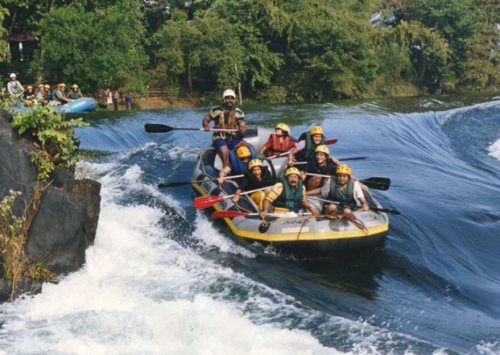Richard Gere to launch Survival International report on uncontacted tribes
Half of uncontacted tribes face extinction within a decade

The report identifies at least 196 uncontacted Indigenous groups living in 10 countries across South America, Asia and the Pacific
Noted actor Richard Gere will launch a comprehensive global study conducted by human rights organisation, Survival International, about threats to 196 uncontacted indigenous groups worldwide. The report, to be released on October 27, warns that half face extinction within a decade without stronger protection of their rights and territories.

The report identifies at least 196 uncontacted Indigenous groups living in 10 countries across South America, Asia and the Pacific
Survival International, a London based human rights organisation, will release a major report titled Uncontacted Indigenous Peoples: At the Edge of Survival on October 27, presenting what it describes as the first comprehensive global account of the world’s uncontacted indigenous communities.

(l-r) Survival Director Caroline Pearce, Richard Gere, Lucas Manchineri, Maipatxi Apurinã and Herlin Odicio spoke at the press conference. Sarah Shenker translated. Jamie Stoker/Survival
In a press statement, Survival International says that the report will be launched by noted Hollywood actor and human rights advocate Richard Gere, along with Survival International Director Caroline Pearce and several indigenous leaders from the Amazon.
The statement adds that based on detailed research, the report identifies at least 196 uncontacted Indigenous groups living in 10 countries across South America, Asia and the Pacific.
It adds that the report warns that nearly half of these communities could disappear within a decade if governments and corporations fail to protect their rights and lands.
“There is a catastrophe looming, and a clear way to evade it. We can respect uncontacted peoples’ clearly expressed choice to be left alone. Or we can continue tearing up their forests for mining, logging and ranching, and allowing missionaries or influencers to invade their homes, and risk killing up to half of all uncontacted groups in the next 10 years. The solution is obvious: industries and governments must act now to halt this continuing colonisation, so that uncontacted peoples can live freely as they choose,” says Pearce.

Maipatxi Apurinã, a member of the Pupīkary (Apurinã) people of Brazil, spoke at the press conference, alongside Lucas Manchineri.
“The authorities must respect our right to live in our place, on our land. Without the Indigenous peoples and without the forest, there is no life. It is very important for uncontacted Indigenous peoples to be able to live on their land. The whole world must know that they are there in their forest. The authorities must respect their right to live there,” says Davi Kopenawa Yanomami, a spokesman for the Yanomami people in Brazil.
According to Survival International, uncontacted peoples consciously avoid contact as an act of survival and self-determination and are protected under international law. When their territories and autonomy are respected, the report notes, they are able to sustain their traditional ways of life.

Richard Gere with (l-r) Herlin Odicio, Maipatxi Apurinã and Lucas Manchineri. Jamie Stoker/Survival.
It adds that several major threats to their existence, including illegal logging, mining, and cattle ranching, as well as newer dangers linked to digital exposure and criminal activity.
Moreover, the report documents the activities of social media influencers seeking to make “first contact” for profit, evangelical missions using technology to locate remote tribes, and violent criminal networks expanding drug cultivation and illegal mining operations. It includes testimonies and case studies illustrating the severe social and psychological harm caused by forced or accidental contact.
The statement adds that speakers at the launch will include Lucas Manchineri, President of the Manchineru people’s organisation MAPPHA, Maipatxi Apurinã from COIAB, the coordinating body of Indigenous Peoples in the Brazilian Amazon and Herlin Odicio, a Kakataibo leader from Peru’s Ucayali region, who has long advocated for the protection of ancestral territories from illegal encroachment.
Pearce and Gere will speak on the need for stronger policy frameworks to safeguard Indigenous autonomy and enforce territorial rights.









